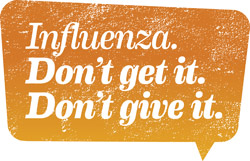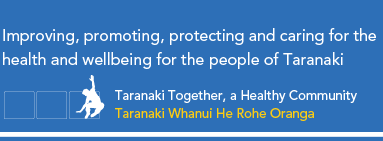
Younger people may be at greater risk from flu virus this year
12 May 2014
Younger flu victims aged 18-64 years may be at greater risk from this year’s flu virus, warn health experts at the National Influenza Specialist Group (NISG).
Sixty percent of those hospitalised for influenza in the recent US winter were in this younger age group.
Virus expert and NISG spokesperson, Dr Lance Jennings says that, although influenza activity overall is still at about normal inter-seasonal levels in New Zealand, the A (H1N1) virus strain, which was predominant in the US this winter, could also be prominent in our flu season.
“This particular virus can lead to serious complications for younger, previously healthy people, but the good news is it is covered by the 2014 vaccine. So we strongly advise people to talk to their doctor or nurse soon to arrange a flu vaccination, which is free for many people.
Younger people with heart conditions, asthma, respiratory conditions, diabetes, kidney disease, cancer, smokers, the obese and pregnant women are at risk of greater complications from influenza.
“Often people in these groups consider themselves fit and healthy and not at risk. But the flu virus can make their existing conditions far worse and can lead to serious illness or even death.”
Winter usually sees influenza cases increase.
“People tend to stay indoors and come in close contact more as the temperatures drop and they are more likely to spread the influenza virus. So it’s a good idea to immunise now for best protection. It can take up to 14 days from vaccination to build immunity,” advises Dr Jennings.
Influenza vaccinations are free for New Zealanders from a doctor or nurse until the end of July if you are in one of these groups:
- People aged 65 and over
- Anyone under 65 years of age (including children) with long-term health conditions such as heart disease, stroke, diabetes, respiratory disease (including asthma), kidney disease and most cancers
- All pregnant women
- Children aged from six months and up to five years of age who have been hospitalised for respiratory illness or have a history of significant respiratory illness.
Additional information about Influenza and immunisation:
The 2014 seasonal influenza vaccines for New Zealand include two new World Health Organization recommended strains based upon the strains most likely to spread and cause illness in people this season. These are not new or novel viruses. The composition is:
- an A/California/7/2009 (H1N1)-like virus;
- an A/Texas/50/2012 (H3N2)-like virus;
- a B/Massachusetts/2/2012-like virus.
Contrary to a widely-held myth, you cannot get influenza from the vaccine, as it does not contain any live virus. Occasionally some people, when vaccinated, are incubating another viral illness coincidentally but their symptoms are not caused by the vaccine.
Influenza or ‘flu can be a serious illness – it’s more than a “bad cold”. Anyone can catch it – even the fit and healthy.
Influenza Symptoms |
Cold Symptoms |
Sudden onset of illness. Moderate to severe illness lasting 7-10 days |
Mild illness |
Fever (usually high) |
Mild fever |
Headache (may be severe) |
Mild headache (congested sinuses) |
Dry cough may become moist |
Sometimes a cough |
Muscle aches |
Muscle aches uncommon |
Shivering |
A runny nose |
Bed rest necessary |
|
Can suffer severe complications (e.g. pneumonia) |
|
Media contact: Brenda Saunders, NISG, Mob: 021 777 171.
Last updated: Monday, May 12, 2014



